Student Blog
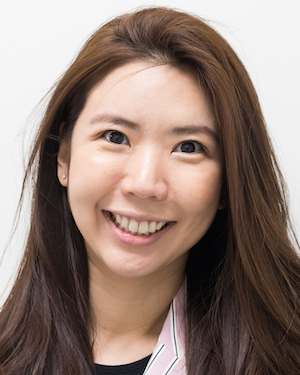
Wake Up Call ⟩
April 9, 2020, by Catherine
Last week, I wasn’t feeling so great. It may have been the constant news being consumed or the overall sense of anxiety that has accompanied the new norm. While the rationale part of me knew that it was very unlikely that I had been infected with COVID-19, the wave of “what ifs” and leaps of the imagination to the worst case scenarios could not be stopped. Long story short, after some rest, extra fluids and time away from the news, felt better. It was my body telling me that I needed to slow down. The unforeseeable changes and disruptions in my daily occupations had challenged my wellbeing and had created unfamiliar reactions.
As an OT, my tool box is filled with strategies and interventions to help others, my focus had been on making sure my family and friends were adjusting the best way possible. I was not being mindful of my own needs, and as a result had burned out. Caregiver and provider burnout has been a topic of discussion throughout the master’s and clinical doctorate programs. Managing a household, residency and school assignments, from the same physical space has forced me to wear multiple hats at once. In the beginning, like many others, I jumped into action, trying to provide a safe environment for my family to cope. In the process, forgetting about myself.
Ironically, I had researched and developed a program during my Level 2 fieldwork, to provide providers in a hospital setting, strategies to respond to the state of vital exhaustion that was caused by emotional exhaustion, depersonalization and the overall decreased sense of personal accomplishment. Now more than ever, the current pandemic has created a constant state of fight or flight adrenaline rushes in our communities, to our healthcare frontline workers and other positions of essential service providers, and to our individual selves.
Best practice recommendations include initiating a wellness audit of the workplace, where the leadership would support the team of care providers in identifying sources, providing education and resources, and encouraging team members to express needs and set SMART goals to promote work life balance. Evidence also supports that in times of burnout, being mindful of our core values helps us stay grounded and motivated towards our personal and professional goals in difficult times. I have seen that many of my colleagues who enter healthcare professions share a common passion of helping others, empowering them to thrive in their everyday lives. But in times like these, I want to remind us all that we not only should be compassionate to the needs of others, but our own as well.
On that note, I would like to share some occupations that are important to me and have helped me re-calibrate and stay grounded.
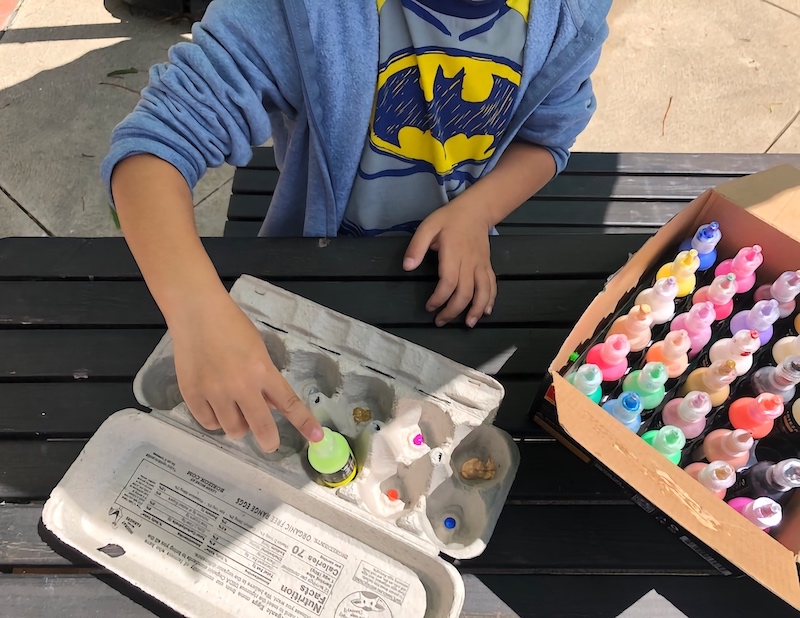
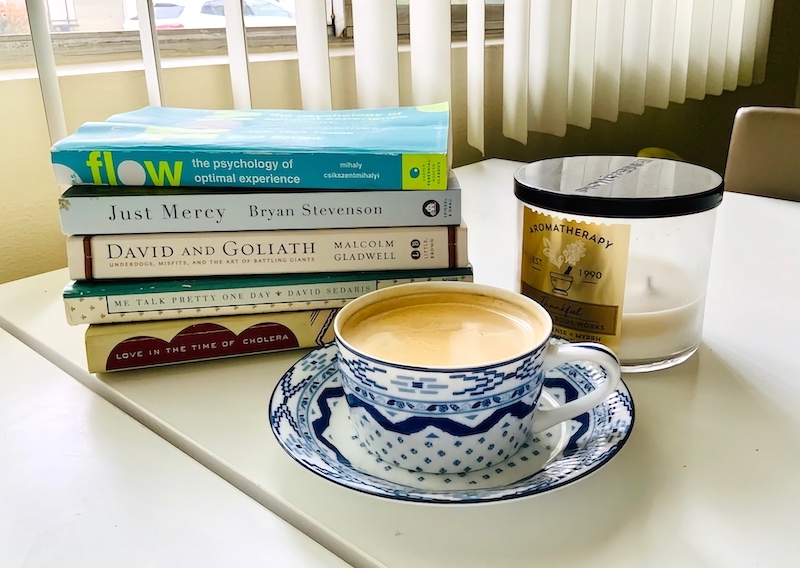
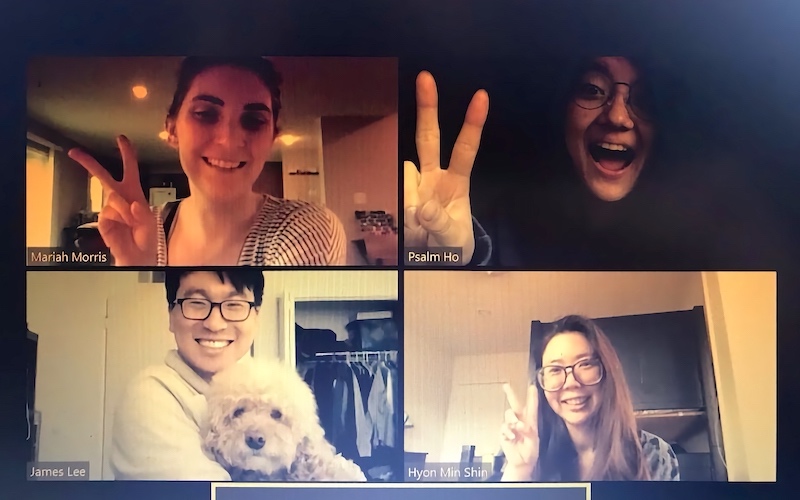
Also, if you are willing and able, I invite you to help out our frontline healthcare and essential workers in your area. If you are in the LA area, and would like to help out our frontline workers at Keck, please visit this website. Together we will fight on!
⋯
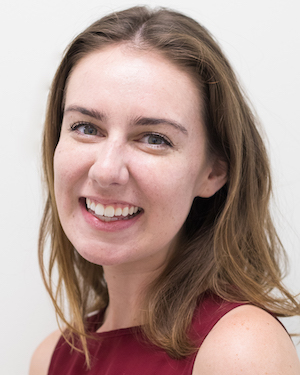
A Taste of Telehealth ⟩
April 8, 2020, by Noelle
This semester, I decided to take OT 574 Enhancing Motor Control for Occupation as one of my electives. While not super related to my interest in primary care, I chose it because I had previously enjoyed learning about motor control during the Adult Rehabilitation Immersion and thought it was a good idea to diversify my course load. What I was really drawn to though, was the chance to work with patients and refine my “therapeutic touch”. Trust me when I say that there is a huge difference between watching a demonstration or discussing a case study and actually being the one touching and working with a patient. You have to be confident, firm, but not too firm! It’s a really delicate balance that I was able to practice each week while mobilizing and facilitating movements with my client during the lab portion of this class.
This course was the definition of hands on learning. So when the move to online classes was made, I was very concerned and disappointed that I was no longer going to be able to see my client.
Luckily, my professors are experts in modifying tasks and coming up with creative solutions in their clinical work. Turning lemons into lemonade, they arranged for us to continue treating our clients through Zoom, allowing us to give telehealth a try. Given the hands-on nature of neurorehabilitation, there are limitations to what we can do remotely. But there are also a lot of things we can do.
So far, I’ve had two sessions with my client. My team and I are focused on designing a home exercise program that will reduce his abnormal tone and help keep him on track to making progress towards his goals. One of the advantages of using Zoom, is that we get to see his living environment “in person”. This helps us problem solve in real time around obstacles that he faces in doing some of the exercises and activities we recommend. I’m hopeful that we are making a well-tailored program for him.
There are challenges to this method. Sometimes it’s hard to see the specific movements through the camera, or it’s tricky to demonstrate and explain an exercise on a screen. But I am proud of the way both my team and our client are adjusting and making the most of the situation. This is a great exercise for us as OT students to think on our feet, be creative, adapt. Those are core skills to our profession, and I am thankful to be getting this experience and unique opportunity to practice them. Here’s to the silver linings!
For this week’s song rec, I’m sharing one of my all time favorites — “Video Killed The Radio Star” by The Buggles . . . fitting don’t you think?
⋯
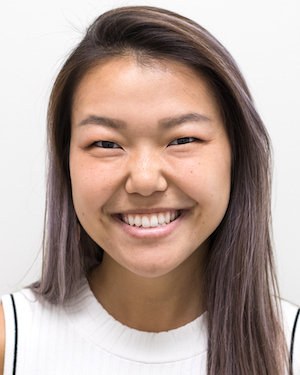
Checking In ⟩
March 31, 2020, by Kaho
First of all, I’d like to start off by saying that it’s good to be “back!” It’s been a while since I last wrote a blog and been back on my regular class and work schedule. For the second years, the first 2 weeks of March were allocated to our Leadership Externship and the week after that was spring break, so I hadn’t been in classes for 3 weeks. Now, I’m “in class” virtually and it’s different, but we’re all making it work.
March has been a wild ride. It began with my externship to Ghana being cancelled and scrambling to find an alternative experience. That all honestly feels like months ago, as I’ve been sitting at my work-from-home set up in my living room for 2 weeks now with all sense of time or day of the week gone. In the past several weeks, I’ve come across so many tips and resources on how to stay healthy mentally and physically during this difficult time for everyone and I’m sure you have too. I want to add to your resource list by connecting you to blogs written by USC students outside of the Chan Division, because I’ve gotten questions on how USC students are handling the situation!
On this website, you’ll find more tips on how to stay healthy, connected, engaged, and successful in school, regardless of whether you’re an undergraduate student or graduate student and what program you’re in.
Specifically, for me as a student in the OT program, I’ve dealt with the situation similarly to other people. I’m engaging in indoor activities such as board games, puzzles, cooking, reading, and journaling. I go on a run or walk outside at least once a day, while making sure to maintain at least 6 ft between myself and whoever I cross paths with. Home workout videos have also been a huge help. I’m trying to exceed last year’s running mile count of 550 this year and am planning on signing up for my second half marathon once this lockdown is over, so that I have a goal to work towards during this time I don’t feel as productive and I have something to keep propelling me forward. I attend lectures through Zoom and for classes that require a hands-on clinical experience, the professors have come up with alternative assignments such as case studies and video analyses. I make sure to only spend 10-15 min each morning to read up on COVID-19 news and I’ve found that to be sufficient to stay informed and updated, but not overwhelmed. I’ve also cut back on my screen time on my phone by setting time limits on all social media apps. That has helped control the flooding of information and kept me active. Lastly, I’ve been using Zoom and other webcam apps to stay connected with friends and family. With family in Japan, calling over webcam isn’t new for me, but it’s been especially important in these recent weeks.
Many things that I’ve learned in OT school such as ergonomics, creativity, and the effects of occupational deprivation have been challenged and tested during this lockdown, so it’s been an interesting first-hand learning experience. I’ve also gotten to see the essential role of OT in a global pandemic, which has further deepened my love and appreciation for the profession. I hope you all are staying healthy and like many, I am looking forward to the day I can study and roam around campus again with all of my old and new (congrats to the class of 2022!) colleagues. Student ambassadors are still working regularly remotely so as always, email us with any questions or concerns!
⋯
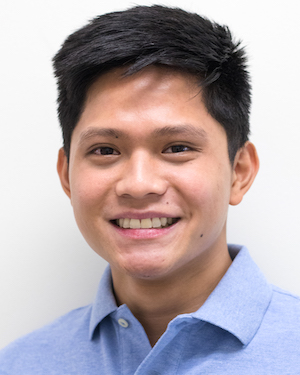
A Whole New (Quarantine) World ⟩
March 30, 2020, by Japeth
As occupational beings, we long for social interaction with family, peers, and even with unfamiliar people; we want to explore the world and be with nature; we want to establish our routines, plan for the coming weeks and months as we enjoy life day by day; and definitely, we all want to live life to the fullest! Can you imagine life when we can all do these things? Doesn’t it look perfect? Can you now imagine a life that does not allow us to do any of the said activities? Honestly, for me, I don’t need to imagine anymore — it is actually happening right here and right now.
The quarantine life has affected us in many, many ways: universities transitioned to online classes, companies decided to implement a work from home set up, restaurants and coffee shops are now only available for to-go orders, and so on. But what can we really do? As my wonderful professor Dr. Emily Ochi had told me before, this is something that nobody wanted, or this is nobody’s fault; but its effects and consequences are left for us to endure. And I think she is right — we are innocent victims of such circumstances and yet here we are still trying to keep things going! (Just a quick shout out to Dr Ochi, Dr. Danny Park and his Global Initiatives team, and the rest of the faculty and staff of USC Chan for checking in with us and for making sure that we are doing okay despite everything!!)
Just when I thought that my previous blog post was the most personal that I’ll be posting ever, I think this pandemic proved me wrong. Here are some tips (all based on my personal experience, so please don’t judge LOL), that you can do while being on quarantine:
- Check in
The power of checking in has never been this appreciated to some people, including myself. Who would ever thought that a simple “Hey, how are you?” would mean the world? In stressful times like this, we do not know who to contact or communicate with since everyone is actually going through the same battle. We don’t want to give additional emotional or psychological baggage to our friends and family, because surely, they are also going through a lot. But I think having a support group or being with certain people (virtually) around you and making them feel that you are there for them and vice versa, makes a huge difference! - Escape but always go back
We are humans and humans as we are, the effects of stress can easily penetrate our mind and body. We should learn when to stop, when to take a break, and when to continue again. When you have so many things at hand and you feel overwhelmed, remember this saying: “Rest if you must but never quit!” - Enjoy today and always try look forward to better days
I know that when times get rough, it is just not easy to have fun and enjoy every moment. I know that uncertainty always has a way to ruin our mood, but I also know that we are bigger than our uncertainties in life. If today does not feel okay, maybe tomorrow will, or the day after tomorrow, or maybe next week! Funny how this sounds like, but there is always something better that is coming our way. Maybe my plans for this week or next week are ruined, but who said I don’t have the next month to make another set of plans?
“When the going gets tough, the tough get going.” — a line that represents all of us right now. We are tough and we will continue to thrive, even in the darkest of times. Fight On!
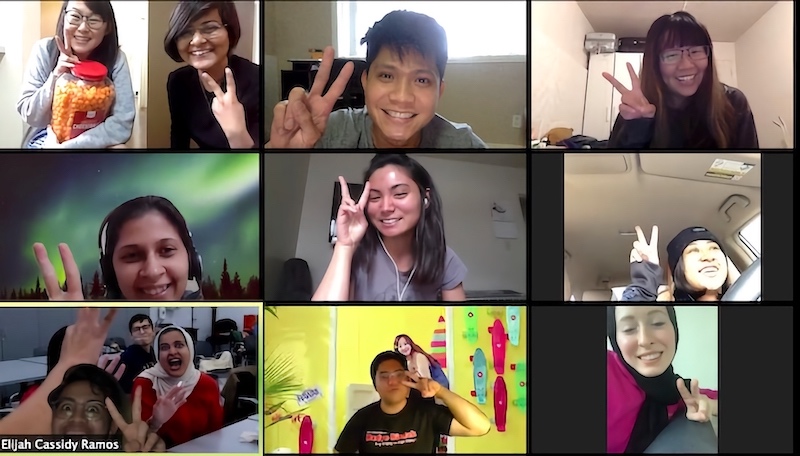
Here is a group zoom photo of some of the students from the post-professional master’s cohort. Fight on from our screens to yours!
⋯
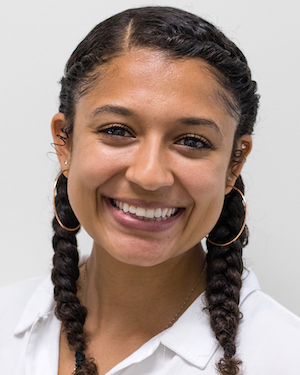
February is Over, Black History is not! ⟩
March 27, 2020, by Kat
“Black history is American history” — Morgan Freeman
February is over. But that does not mean that we as a country should stop celebrating Black history and Black culture. During February, many events took place on campus at USC to celebrate Black History Month. Clubs such as the BGSN, the CBCSA, and the BSA held a variety of festivals, hosted guest speakers, and career networking opportunities in the spirit of Black History Month.
One specific event that I participated in was the Black Pharmacy Society’s “The Black Experience in Healthcare: Challenges and Opportunities”. This event was a panel composed of current Black students from various disciplines that spoke on their experience of being a student of color at USC. I am honored to say that I was on this panel. The fields of occupational therapy, physical therapy, physician assistants, medicine, pharmacy, and dentistry were all well represented. Meaningful conversation surrounding imposter syndrome, the importance of mentorship and representation were a few of the topics discussed. Seeing people who look like you in different fields is very important. For those that may not know, imposter syndrome is “the feeling that you haven’t earned your success, you simply got lucky, and you’re a fraud or ‘imposter’ around people who actually earned it and know what they’re doing” (cited from empowerwork).
Imposter syndrome was discussed from the perspective that sometimes Black students feel as though they are imposters in their respective fields due to the lack of representation within their fields. These students feel as though they are not and will not be able to compete with their counterpart peers. These feelings can be overwhelming, isolating, and can have rippling effects to the success of Black students, or any student experiencing imposter syndrome.
However, I believe Maya Angelou’s quote, “the more you know of your history, the more liberated you are,” calls students, in this case specifically Black students, to look to history for empowerment. Students may be the first in their family to go to college, graduate school, or may be the only Black student in class. But let’s take a look at history:
- Madam C. J. Walker was the first female millionaire. She was Black.
- Dr. Daniel Hale Williams was the first to complete a successful open heart surgery in America. He was Black.
- Katherine Johnson was the first female to receive credit as an author for a NASA research paper. She was Black.
These are only a few of the firsts in America that belong to the Black community. I do not mention these first to compare the Black community to other communities. I state these facts to empower all minority students to stand together, be great, and keep breaking barriers. Be the first. Be the best. Black history should serve as an inspiration to us all.
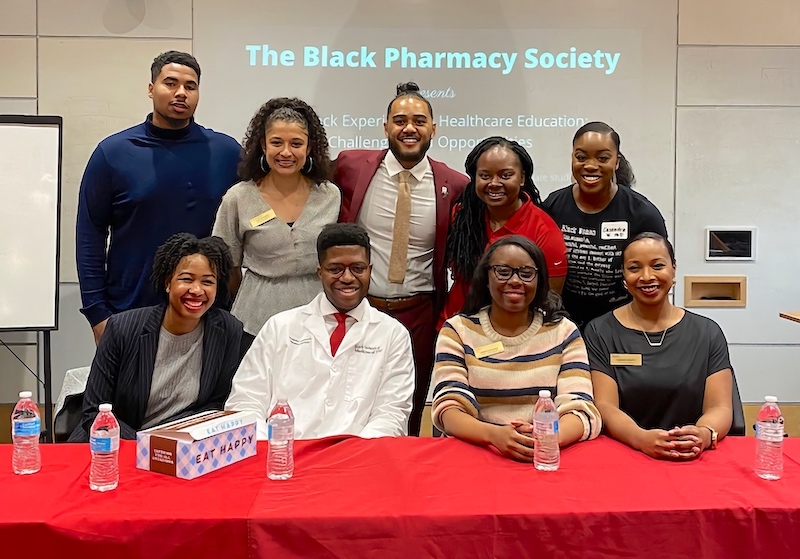
Pictured are the panelists from the Black Pharmacy Society event. (All individuals pictured agreed to be shown with this article.)
⋯





